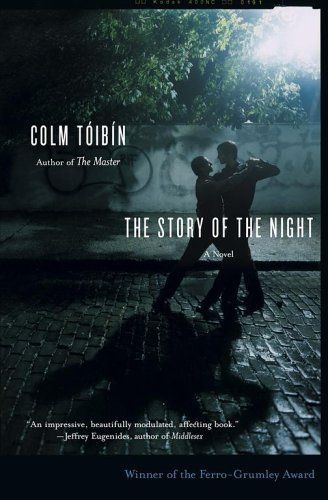
The Story of the Night A Novel
From the award-winning author of Brooklyn and The Master, a powerful, brave, and moving novel set in Argentina. In Argentina, in the time of the Generals, the streets are empty at night, and people have trained themselves not to see. Richard Garay lives with his mother, hiding his sexuality from her and from society. Stifled by his job, Richard is willing to take chances, both sexually and professionally. But Argentina is changing, and as his country edges toward peace, Richard tentatively begins a love affair. The result is a powerful, brave, and poignant novel of sex, death, and the diffculties of connecting one's inner life with the outside world.
Reviews
Irene Alegre@irenealegre
María Belén@mbferreyra
Jessica Smith@jayeless